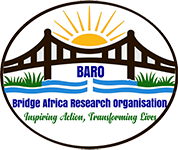As the world observes World TB Day 2025, BARO joins the global community in reaffirming its commitment to combat tuberculosis (TB), a disease that continues to pose significant health challenges, particularly in the communities we serve. The theme of this year’s observance, “Yes! We Can End TB: Commit, Invest, Deliver,” serves as a powerful reminder of the collective action required to eradicate this disease.
Today, March 24th, marks a pivotal moment in the history of TB. On this day in 1882, Dr. Robert Koch discovered the bacterium that causes TB, a groundbreaking finding that paved the way for diagnosis, treatment, and prevention efforts. As the World Health Organization (WHO) reaffirms its commitment to support all Member States in our collective fight against TB, we are reminded that ending TB requires a sustained and collaborative effort.
TB remains a significant public health concern, disproportionately affecting vulnerable populations, including low-income communities, people living with HIV/AIDS, and those with compromised immune systems. In the communities we serve, TB exacerbates existing health disparities, perpetuating cycles of poverty and inequality. As Dr. Tedros Adhanom Ghebreyesus, WHO Director-General, notes, “TB is a preventable and treatable disease, but it continues to kill over 1.5 million people each year, mostly in low- and middle-income countries.”
So, what is TB? Tuberculosis is a bacterial infection caused by Mycobacterium tuberculosis that primarily affects the lungs, but can also affect other parts of the body. TB is spread through the air when an individual with active TB coughs, sneezes, or talks, releasing droplets that contain the bacteria.
Identifying TB can be challenging, as its symptoms are often nonspecific and may resemble those of other diseases. Common symptoms include coughing that lasts for three or more weeks, coughing up blood or mucus, chest pain, fatigue, weight loss, loss of appetite, night sweats, chills, and fever. If you suspect you have TB, it is essential to seek medical attention immediately.
The impact of TB on social and economic performance cannot be overstated. TB can lead to loss of income, stigma, and social isolation, increased healthcare costs, and reduced educational and social opportunities. As TB expert, Dr. Eric Goosby, notes, “TB is a disease that affects not only the individual but also their family and community. It’s a disease that perpetuates poverty and inequality.”
At BARO, we recognize the need for a comprehensive approach to combat TB. We are committed to supporting community-based initiatives that strengthen TB prevention and care services. We will continue to advocate for policies promoting universal access to TB diagnosis, treatment, and care, particularly for vulnerable populations. Additionally, we will intensify our efforts to educate communities about TB, its symptoms, and the importance of seeking medical care early.
As we observe World TB Day 2025, BARO reaffirms its commitment to joining forces with governments, civil society, and other stakeholders to end TB. We believe that together, we can make a meaningful difference in the lives of those affected by TB and create a healthier, more equitable world for all.


